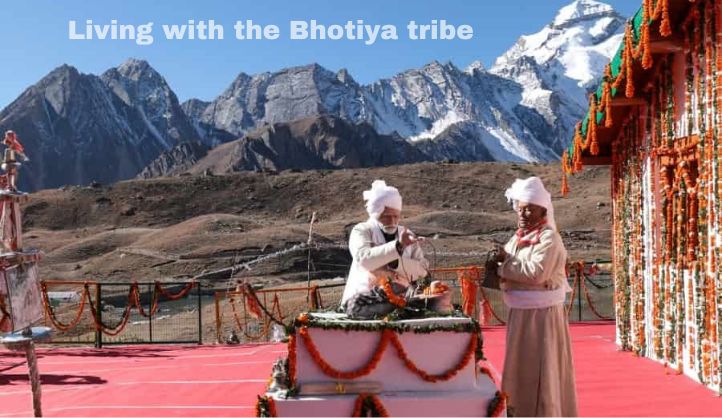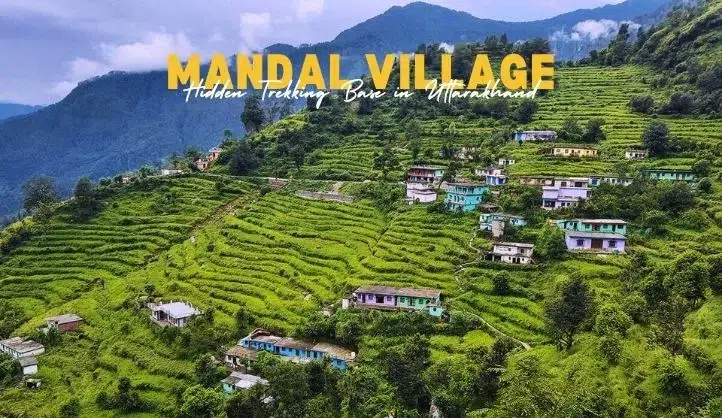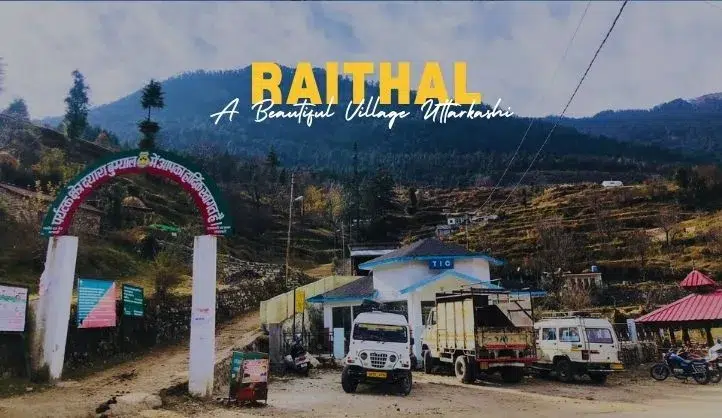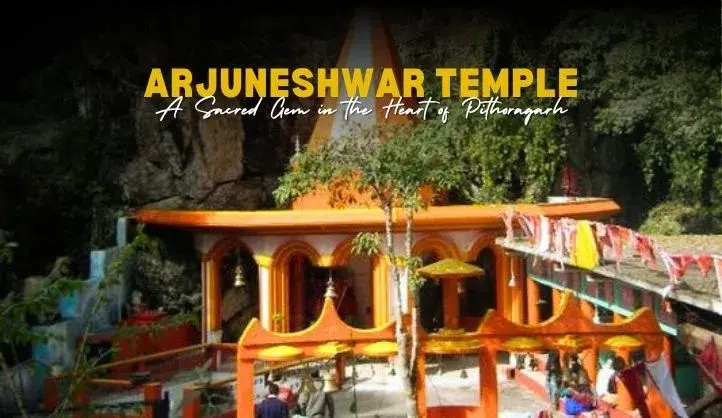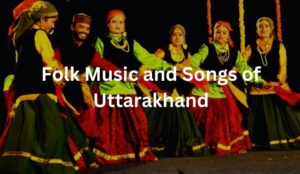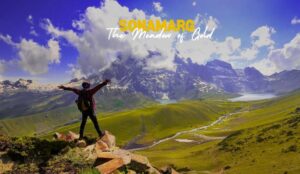Nestled amidst the majestic Himalayas, amidst snow-capped peaks and vibrant valleys, live the Bhotiya tribe, a people whose resilience and unique way of life have fascinated travelers for centuries. Imagine waking up to crisp mountain air, witnessing ancient traditions unfold daily, and experiencing the warmth of a community deeply connected to its environment. Today, we embark on a journey to understand what it means to live alongside the Bhotiya tribe.
A Life Shaped by the Mountains:
The Bhotiyas, primarily inhabiting Uttarakhand, India, have traditionally been semi-nomadic pastoralists. Their lives revolve around the rhythm of the seasons, migrating between higher and lower pastures with their herds of sheep and goats. This deep connection to their environment has shaped their traditions, beliefs, and customs.
A Day in the Life:
Imagine waking up to the sound of yak bells and prayer flags fluttering in the wind. Men tend to their animals, women weave intricate woolen garments, and children play amidst the laughter of elders sharing stories around crackling fires. Life here is simple, yet infused with rich cultural traditions.
Unique Customs and Traditions:
Immerse yourself in the vibrant tapestry of Bhotiya culture. Witness vibrant festivals like Yarthung, celebrating the new year, or Lhamo, honoring protective deities. Listen to the haunting melodies of folk songs passed down through generations. Marvel at the intricate craftsmanship of their colorful clothing and hand-woven rugs. Each element speaks volumes about their rich heritage and deep connection to their land.
Challenges and Sustainability:
While their way of life has remained relatively unchanged for centuries, the Bhotiyas face modern challenges. Climate change disrupts their traditional migration patterns, and globalization brings new influences. Understanding these challenges and supporting sustainable practices becomes crucial for preserving their unique culture and traditions.
Connecting with the Community:
Visiting Bhotiya communities can be a deeply enriching experience. Respectful interaction goes a long way. Learn basic phrases in their language, dress modestly near religious sites, and avoid polluting the environment. Consider supporting local businesses and initiatives that empower their communities.
Beyond the Tourist Experience:
Living with the Bhotiya tribe isn’t just a tourist experience; it’s a chance to learn about resilience, adaptability, and deep-rooted cultural values. It’s a reminder of the importance of living in harmony with nature and cherishing traditions. Remember, responsible tourism is key. Be mindful of your impact, seek authentic experiences, and leave only footprints on this sacred land.
Ready for the Adventure?
If you yearn for a journey that transcends the ordinary, consider immersing yourself in the world of the Bhotiya tribe. It’s not just a visit; it’s a chance to connect with a unique culture, learn from their way of life, and create memories that will forever resonate in your heart.
Living with the Bhotiya Tribe: Tales from the Himalayas
Beyond the general information, your blog will come alive with personal stories and experiences. Let’s weave in some “tales from the Himalayas”:
1. Sharing a meal under the stars:
Imagine Sarah, a solo traveler, invited to share a traditional meal with a Bhotiya family. She savors the flavors of yak butter tea, momos, and local spices, feeling welcomed into their warmth and learning about their daily lives through broken phrases and smiles.
2. Witnessing a sacred ceremony:
Join Rajeev, a photographer, as he observes a local priest performing a “Puja” at a Buddhist monastery. The chanting monks, flickering butter lamps, and intricate rituals offer a glimpse into the deep spirituality that permeates their lives.
3. Learning the art of yak herding:
Picture Elena, an adventurous spirit, joining a young shepherd on his daily routine. She learns the challenges and rewards of caring for yaks, gaining a newfound appreciation for their nomadic lifestyle and connection to the animals.
4. Weaving stories through traditional music:
Share Maria’s experience attending a local festival where women gather to sing and dance. The captivating songs passed down through generations tell stories of their history, struggles, and hopes, fostering a deeper understanding of their cultural identity.
5. Building a sustainable future:
Showcase Liam, a volunteer, working with a local organization to plant trees and promote eco-friendly practices. He witnesses the community’s efforts to preserve their environment and traditions while adapting to modern challenges.
Remember, these are just examples. You can add your own stories, anecdotes, and personal reflections to personalize your blog and make it truly unique and engaging.
Let the Bhotiya tribe’s story unfold through your words and inspire others to embark on their journeys of cultural discovery and responsible tourism!
Conclusion: Leaving Footprints on Your Heart
Living with the Bhotiya tribe isn’t just an adventure; it’s a transformative experience. It’s a journey that teaches you about resilience, cultural richness, and living in harmony with nature. Witnessing their deep-rooted traditions, appreciating their connection to the land, and sharing simple moments offer invaluable lessons. Whether sipping yak butter tea with a family, observing a sacred ceremony, or learning the art of yak herding, each interaction leaves an indelible mark.
However, remember, responsible tourism is paramount. Respect their traditions, dress modestly, and minimize your environmental impact. Support local businesses and initiatives that empower their communities. Leave only footprints on their sacred land, taking with you memories that will forever resonate in your heart.
The Himalayas whisper tales of a unique people, and the Bhotiya tribe embodies their spirit. So, are you ready to embark on this extraordinary journey? Pack your sense of adventure, open your heart, and prepare to be humbled by the magic of the Himalayas.
FAQs:
1. Is it possible to stay with a Bhotiya family?
Homestay programs connect tourists with local families, offering an authentic glimpse into their way of life. Choose responsible operators who ensure respectful interactions and cultural sensitivity.
2. What language do the Bhotiyas speak?
Several Tibeto-Burman languages are spoken, with variations across regions. Learning basic phrases demonstrates respect and facilitates communication.
3. What are the cultural sensitivities to be aware of?
Dress modestly, especially near religious sites. Ask permission before taking photos or videos. Respect their religious practices and refrain from littering or polluting the environment.
4. How can I support the Bhotiya community?
Choose locally-owned businesses for accommodation, meals, and souvenirs. Support initiatives focused on education, healthcare, and environmental conservation. Be a mindful and responsible tourist.

